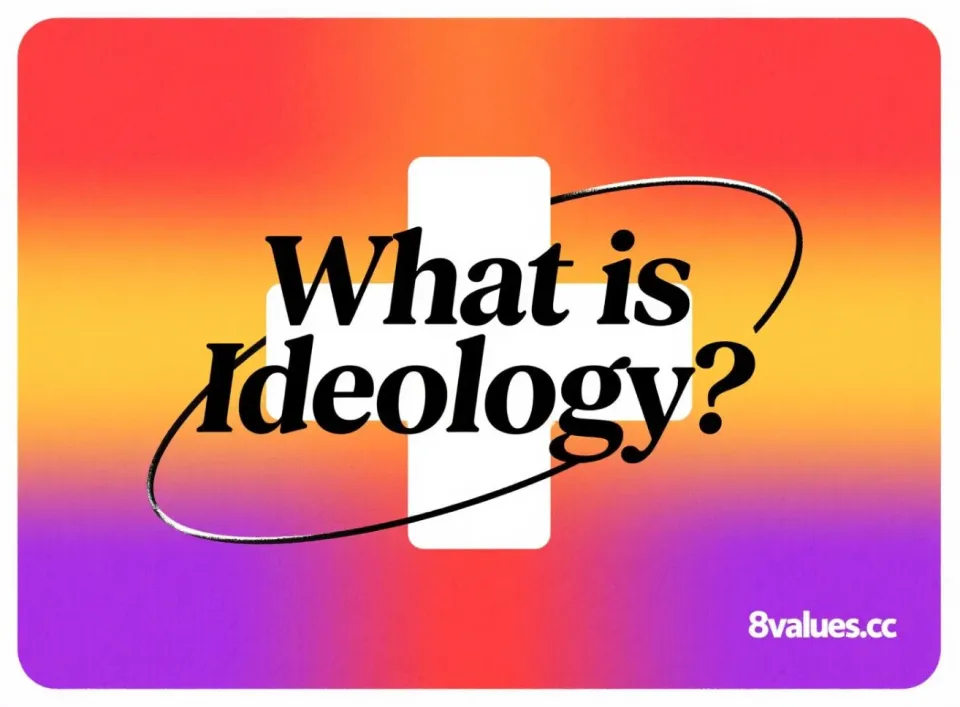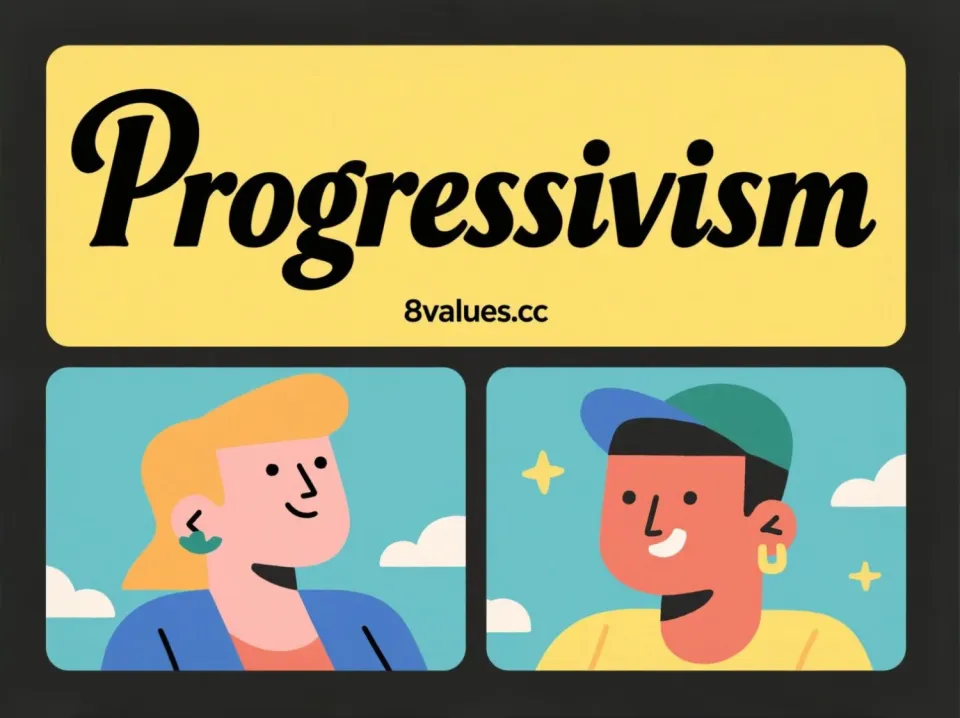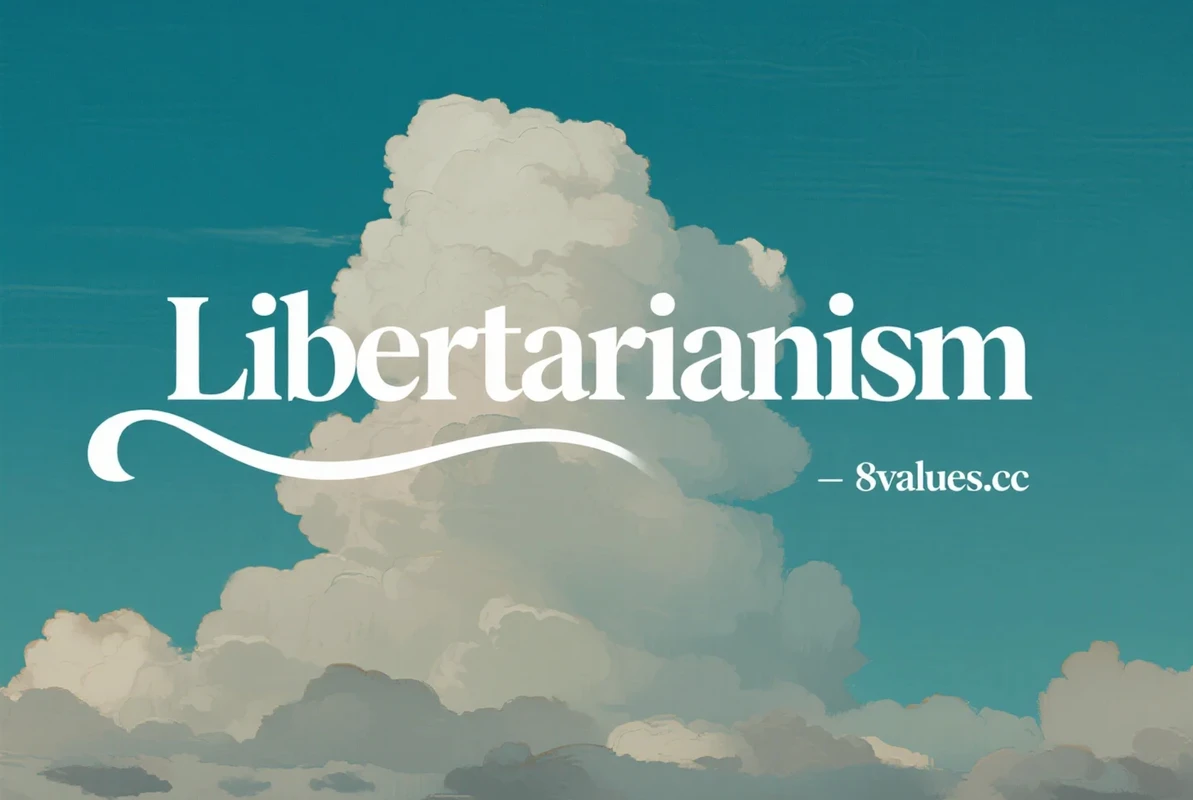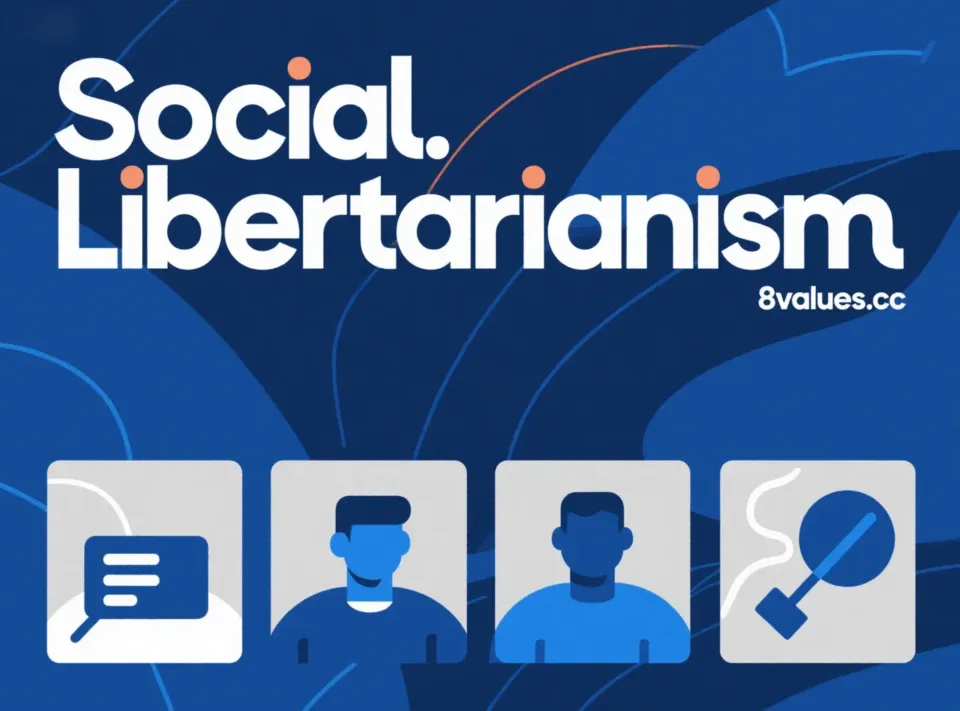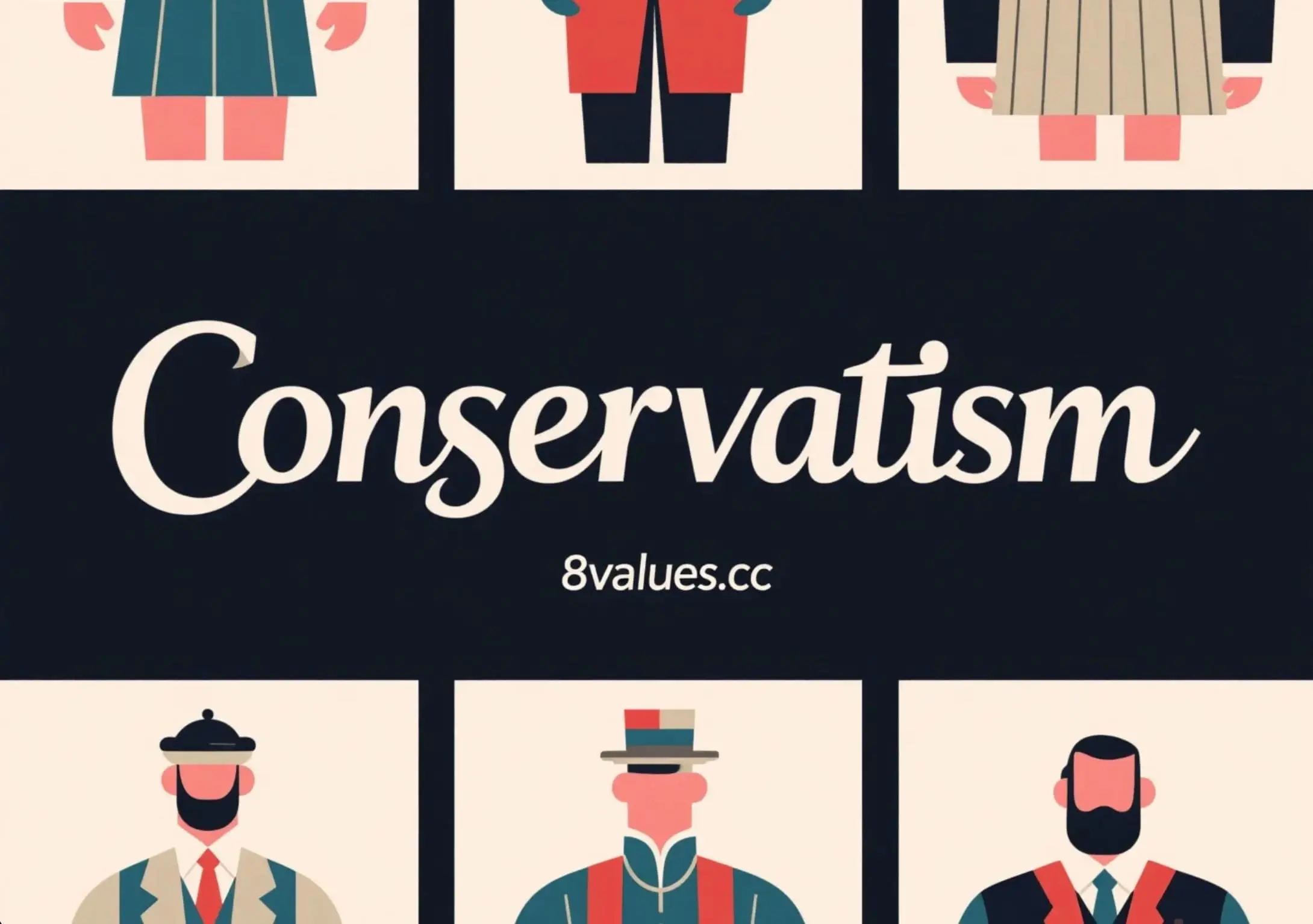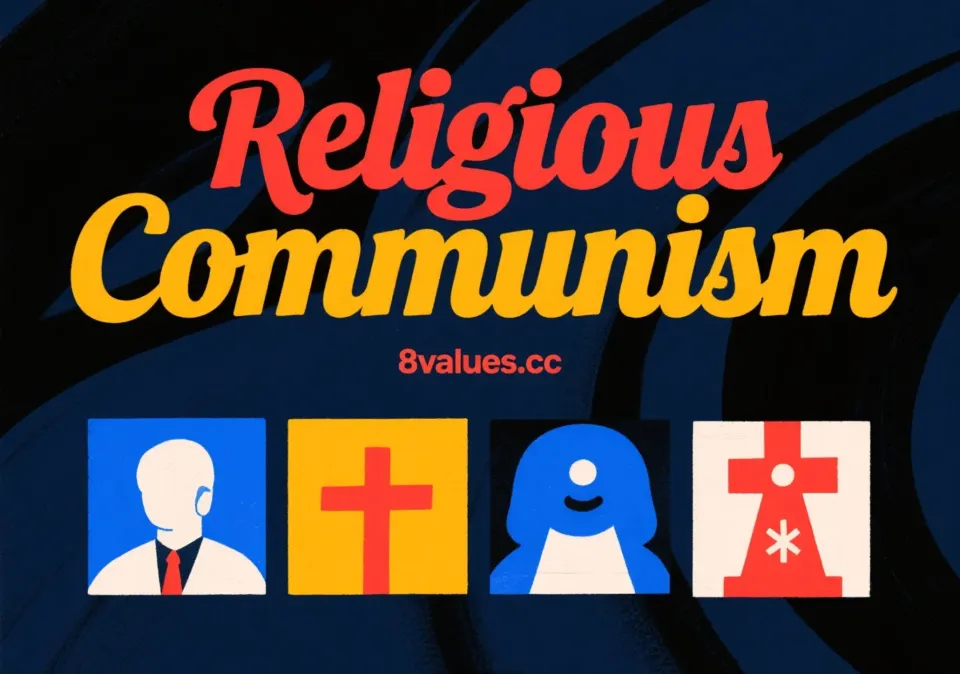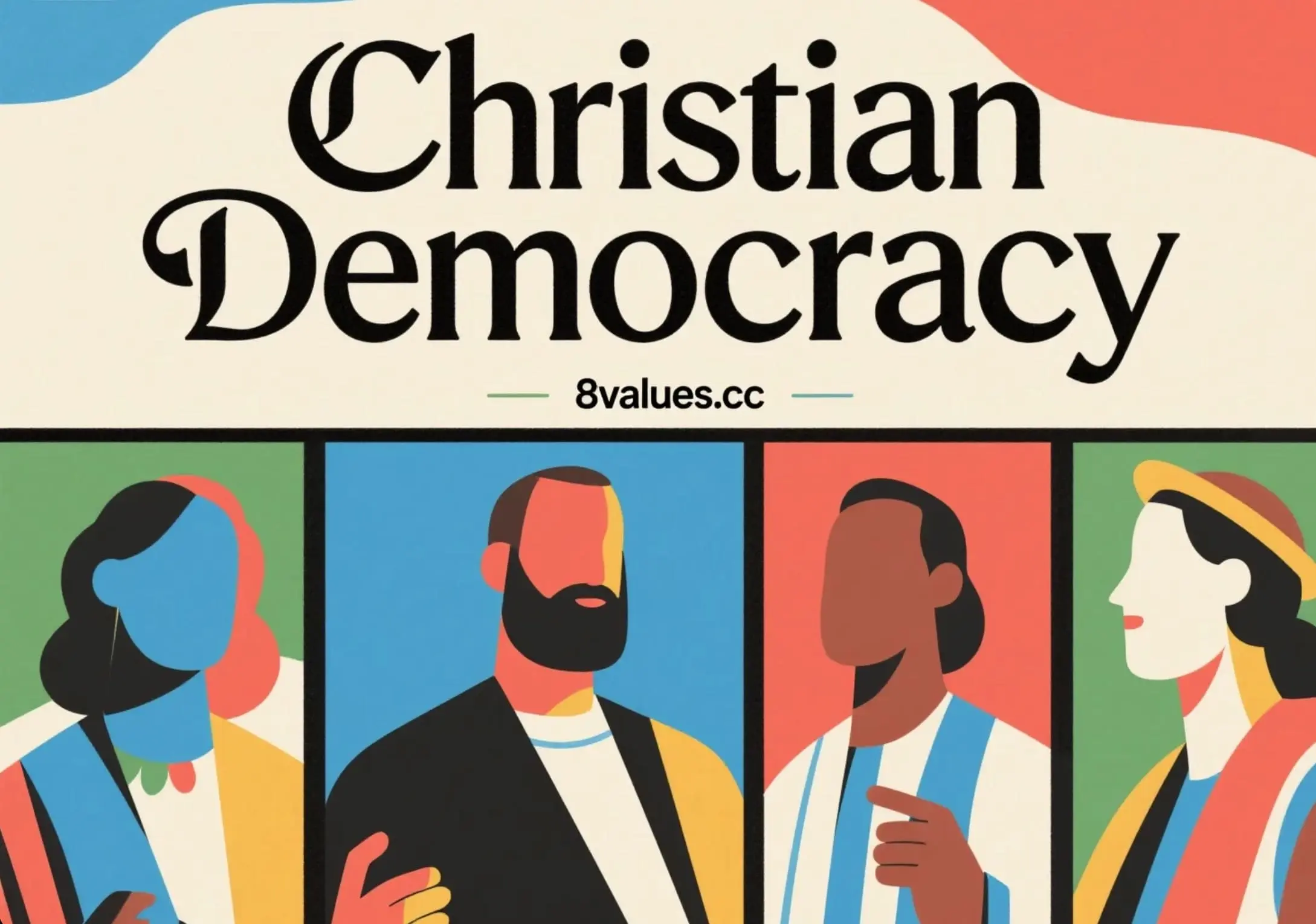What is ideology? Understand the world view, social dynamics and your political spectrum
Explore the definition, origin, evolution, type of ideology and its central role in politics, economy, religion and society. Understand eight values How political ideological tendency tests can help you understand individuals and groups’ values and worldviews.
The term "ideology" is widely used in daily life, but its meaning is extremely rich and complex. It can refer to both an all-encompassing worldview, a narrative used by a specific group to maintain power, or even a deep belief in shaping a personal identity. It sometimes has a derogatory meaning and sometimes is merely descriptive. Regardless of context, the core of "ideology" is often closely related to preference (preference or bias) and adherence to a faction or cause .
Understanding ideology is like deconstructing the deep code of human thinking and collective action. It not only provides a basic framework for understanding the world, guides our decisions and actions, but also forms the cornerstone of social operations, political systems and even cultural identity. In this article, we will explore the origins, diverse definitions, main theoretical traditions, functional impacts and challenges faced by ideology to help you understand this concept more clearly, and you can explore your ideological positioning through eight values self-testing of political ideological tendencies .
The origin and change of word meanings
The term "ideology" was first proposed in 1796 by the French Enlightenment thinker Antoine Louis Claude Destutt de Tracy . He defined it as "a science of ideas", aiming to establish a rational system to combat the irrational impulses of the group and to lay a solid foundation for moral and political science. Destut de Tracy believes that through this science, people can help get rid of prejudice and cultivate reason, thereby guiding society towards happiness. Therefore, the original term "ideology" has a positive and complimentary meaning and is regarded as a tool to correct "false consciousness".
However, this compliment did not last long. After 1801, Napoleon Bonaparte began to criticize Destut de Tracy and his followers for political purposes, dismissing "ideology" as a dogma that is out of reality, abstract, dangerous. Since then, the term "ideology" has been contaminated with derogatory meanings and is often associated with blindness, dogmatism and political extremism.
In the following centuries, the meaning of “ideology” fluctuated repeatedly between praise and criticism, and gradually developed the use of neutral descriptions. It no longer refers only to the "science of concepts", but more generally refers to the concept itself, or the object of research on concepts .
Multiple definitions and core characteristics of ideology
The definition of ideology shows multidimensional heterogeneity due to its complex historical background and different theoretical perspectives. However, almost all modern usage revolves around bias and partisanship .
The definition dimension of ideology
Scholars’ understanding of ideology can be divided from the following key dimensions:
- Value orientation (Valence) :
- Critical/derogatory: It is believed that ideology is inherently wrong and distorted, and is often used to expose its maintenance effect on unjust social conditions. For example, the critical theory tradition believes that ideology is a kind of "false consciousness" that must be transcended through criticism.
- Descriptive/neutral: View ideology as a universal system of concepts for understanding the world without value judgments, only its existence, form and function. Many political scientists tend to adopt this neutral definition, viewing it as a system of political beliefs.
- Form of existence (Location) :
- Cognitivist: Position ideology in thought, belief, form of consciousness, psychological representation or propositional attitude. These beliefs can be explicit or implicit, even in the form of stereotypes and clichés.
- Culturalist: Position ideology in life forms, habits, practices-symbol schemas or "cultural technēs". This view emphasizes the role of ideology in the pre-reflective and habitual dimensions of human agency and social life.
- Practice and Institutions: There are also scholars such as Althusser who believe that ideology exists in practice, rituals and "state machines" (or institutions) , which are the material existence of ideas.
- Scope and Function :
- Social Causes and Effects: Ideology is generally believed to have social causes (explained by social facts) and social effects .
- Social content: Ideology is often considered to have social content, i.e. about society itself.
- Social Function: Ideology is often considered to have specific social functions. For many Marxists, its function is to establish or strengthen oppressive relations . For Althusser, the core function of ideology is to "interpelates individuals as subjects" , that is, to provide us with the framework and direction of action.
Common characteristics of ideology
Despite the definition of diversity, ideology usually has the following core characteristics:
- Collection of concepts: is the sum of ideas, opinions, concepts, ideas and values.
- Provide a worldview: shaping the way individuals or groups understand the world, explaining the current situation of things, and guiding the direction of future development.
- Action-oriented: Not only a theory, but also a guide to guide actions, aiming to maintain or change socio-political practices and institutions.
- Systematic and coherence: Usually a system of interrelated and internal logic, although its coherence may vary by situation.
- Social generative: It is not derived from personal innateness, but is rooted in social existence and material life, and changes with changes in the economic foundation.
- Class or group nature: Different social groups and classes will form different ideologies due to differences in interests.
The main theoretical tradition of ideology
The understanding of ideology mainly forms three theoretical traditions: liberalism, conservatism and Marxism.
Liberal perspective
Liberal theorists view ideology as an irrational bias and partisanship that poses a threat to the moral, political and scientific projects advocated by the Enlightenment . They emphasize the general education through critical thinking, scientific methods and rational standards to combat human tendencies to submit to authority, blindly follow herds and exploit inequality in status.
In this tradition, there is a view to refer specifically to those intellectual visions that are inherently unreasonable and aim to plan human affairs. Others regard it as a broad sense of "comprehensive theory", which includes both reasonable and unreasonable followers. Faced with unreasonable ideology, liberals explore responding through public rationality (i.e., policy defenses that are acceptable to all) or taking more “radical” measures (such as establishing a “cordon” to prevent dangerous ideologies from eroding the public sphere).
Conservative perspective
Conservative thought’s critique of ideology is quite similar to Napoleon’s attack, i.e. it is associated with rationalism and idealism of the Enlightenment. Conservatives often view ideology as a social or political reform project guided by rational or abstract doctrines , and are skeptical of this, alert to the risks that may pose to apply it to social and political life.
They oppose "social engineering" , the attempt to transform society through scientific or social science knowledge. In the view of conservatism, ideology is an abstraction or simplification of practical experience, which poses a threat to good politics when it departs from political experience and originates from other fields (such as war, religion or industrial management).
Marxist perspective
The Marxist tradition has the most extensive and diverse theory of ideology, which swings between revealing the hypocrisy of the Enlightenment program and radically embracing its fundamental goals.
Marx and Engels' early views Karl Marx and Friedrich Engels view ideology as a "unproductive" or "immaterial" activity. In their view, social division of labor and the development of labor productivity constitute the basis of the "state and other conceptual superstructure". People engaged in these superstructure activities are prone to "illusion" of being independent of society and guiding society due to their "actual living status, business and division of labor". Therefore, Marx named "ideology" the "social idealism" in which superstructure workers are susceptible to it, and the superstructure itself that explains this susceptibility. Engels further emphasized in the later period that ideology involves the activity of "taking thoughts as independent entities, developing independently and being dominated by their own laws." However, the development of thought is ultimately determined by the thinker's "material living conditions". Therefore, thinkers often have "false consciousness" when thinking because they attribute the inner development of thought to the reflection or effect of the development of material life. The thoughts of Marx and Engels are closely linked to the proposition that "the thoughts of the ruling class are ruling ideas in every era." This gave birth to the dominant ideation thesis, which argued that the ruling class unconsciously or unconsciously formed a set of beliefs that reflected and served their ruling and exploitative interests, which were accepted by the subordinate classes, thus explaining their continued subordinate status. In addition, Marx's discussion of "fetishism" in "Das Kapital" is also regarded by some scholars as an extension of his ideological theory, and understands it as the mysterious phenomenon caused by commodity relations to participants in capitalist society.
The development of Marxist tradition In the development of Marxism, Lenin regarded ideology as a form of people's understanding of social class contradictions and struggle, simplifying it to a binary choice of "either bourgeois ideology or socialist ideology." Any ideology that deviates from the “right line” is considered “false consciousness.” Georg Lukács and Frankfurt School further developed the connection between "false consciousness" and critical theory, closely combining it with the criticism of alienation and materialization. They believe that false consciousness is not contrary to science, but rather a reflection, normative, and critical theory. Antonio Gramsci developed ideology into a theory of cultural hegemony, emphasizing that ideology is the field of political conflict, and political parties achieve leadership and hegemony over society by combining Marxist theory with other popular consciousness and cultural elements. Louis Althusser draws on the concept of psychoanalysis and proposes that ideology forms the subject through "interpellation". He believed that ideology is not a product of class struggle and will never disappear, but an indispensable structure in social and historical life. Therefore, for him, "ideology" is not a derogatory term. He opposed ideology to science, which is the basis of knowledge production in a particular field, and ideology is embedded in ritual practice and institutions.
The function and social impact of ideology
As a set of conceptual systems, ideology plays an indispensable role at both the individual and the social level.
Give structure and meaning
Ideology provides people with a framework for explaining the world, helping individuals understand their own position in society, thus giving meaning and purpose to life. For example, those who identify with human rights ideology may find a sense of mission in advocating equality and justice.
Promote social unity and identity
Common beliefs and values can unite people's hearts, form collective identity, and promote the unity of social groups. Political movements, religious groups and cultural organizations often flourish around common ideology, such as the American civil rights movement unites different groups through shared ideologies of justice and human dignity.
Maintain or change the status quo of society
Ideology can be used to promote social unity or to maintain social inequality . Dominant ideologies tend to rationalize existing social structures and power relations to make them appear neutral or natural. At the same time, ideology is also a powerful force to mobilize people to promote social change or maintain the status quo .
Shaping the political and economic system
Political ideology is a guide to political movements, parties and government actions. It cares about how power is allocated and what purpose power should be used for. For example, democracy, as an ideology, advocates the realization of people's autonomy through free and fair elections. Communism advocates classless society and sharing of resources and wealth. Economic ideology focuses on the organization and regulation of the economic system, such as free market capitalism, national socialism, etc.
Ideology criticism and challenges
Although ideology has many functions, it is often criticized for its inherent limitations.
Stealth and dogmatism
Ideology can become too rigid and dogmatic , causing people to ignore evidence or alternative views when they stick to a certain belief without questioning. This "closed system" worldview may hinder rational evaluation and decision-making, and even cause conflict. The rigid opposition between capitalism and communist ideology during the Cold War had exacerbated tensions between countries.
Create social differences
When groups of different ideologies fail to reach consensus, it can lead to social polarization and conflict . In political debates, individuals' deep attachment to their ideological beliefs often makes compromises difficult to achieve.
Rational, moral and cognitive errors
Ideological critique usually develops from three aspects, pointing out the errors that ideology may lead to:
- Rationally Faulty Ideology : refers to a state or action that a proxy or group tends to or supports contrary to its own interests due to specific social facts. For example, a commuter may support a mayoral candidate who cuts money for public transportation, even if it goes against his own interests of a quick commute, as it affirms his identity.
- Morally Faulty Ideology : refers to a state of injustice or action in which an agent or group is biased or supported by social situations. This criticism focuses on how people become unintentionally unjust complicators due to social structure.
- Epistemically Faulty Ideology : refers to the bias of an agent or group to or hold untrue or cognitively suspicious beliefs due to social status, background or interests. This includes:
- Faults of Scope : Mistake local or special things as universal or general things.
- Faults of Modality : Mistake of accidental things as necessary and vice versa, for example, treating socially constructed institutions as natural, eternal or unchangeable (i.e. materialization or naturalization ).
- Faults of Reflective Endorsement : The maintenance of beliefs depends on some kind of forced or deceptive background conditions, which will shake once these conditions are recognized.
Ideology and 8 values Political tendency test
Understanding the complexity of ideology and its role in shaping personal and social concepts is crucial for us to understand the world and ourselves. Different political ideologies, such as liberalism, conservatism, socialism, communism, anarchism, fascism, environmentalism, etc., all represent different interpretations of the way social functioning and different blueprints for the ideal social order.
It is in this context that tools such as the 8values political orientation test emerged. It can help individuals quantify and visualize their political tendencies in multiple dimensions such as equality, freedom, progress and tradition . By answering a range of questions, the test results analyze your position on these dimensions in detail, revealing how your core values and beliefs form a unique ideological map.
Whether your test results are anarchic communism , state capitalism , or social liberalism , understanding these complex ideologies helps you better understand yourself and others, identify potential biases, and facilitate dialogue between different perspectives. With an in-depth understanding of all outcome ideologies , you will discover a broader political spectrum and a more diverse system of thought. Also, follow our official blog for more in-depth discussions and latest insights on political and philosophical topics.
Ideology is an indispensable part of human society. It is both a tool for understanding the world and may also be the source of misunderstanding and conflict. Through continuous critical thinking and an open attitude towards diverse perspectives, we can better control the complex pattern of ideology and jointly move towards a more rational and inclusive future.
